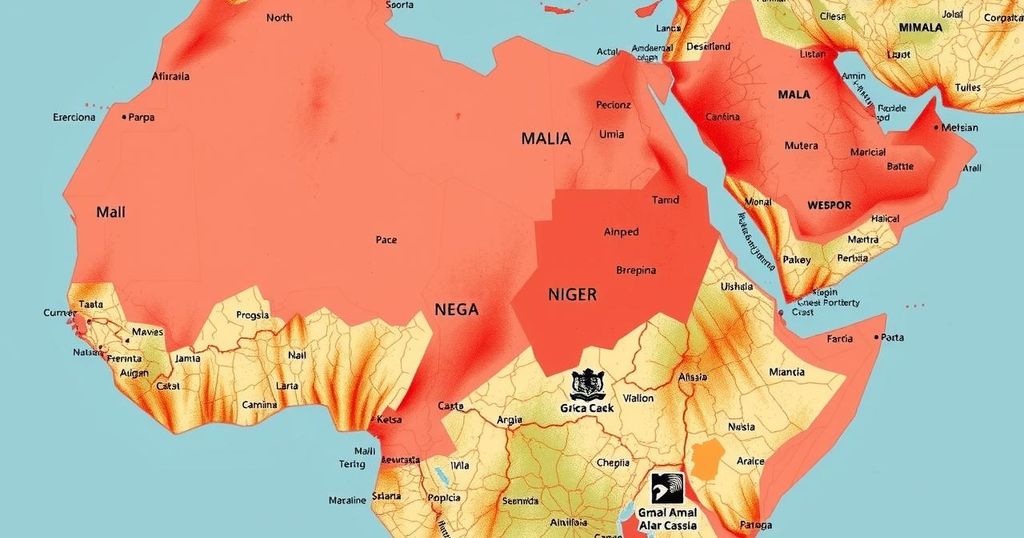ECOWAS Faces Existential Threat as Mali, Niger, and Burkina Faso Announce Exit
Mali, Burkina Faso, and Niger have jointly announced their withdrawal from ECOWAS, citing dissatisfaction with the bloc’s response to military coups and external alliances. This exit poses a significant threat to the stability of ECOWAS and West Africa, potentially leading to increased security issues due to the proliferation of terrorism. Experts highlight the challenges this presents, urging immediate strategic responses to maintain regional cohesion and security.
The imminent departure of Mali, Burkina Faso, and Niger from the Economic Community of West African States (ECOWAS) marks a significant turning point for the regional bloc. The three nations, grappling with violent extremism and disenchantment with perceived Western influences, have officially declared their intention to exit, citing ECOWAS’ unwavering stance against the military governments that have taken power since 2020. This collective withdrawal, which the military rulers have deemed irrevocable, is expected to have profound implications for the stability and operational efficacy of ECOWAS. The bloc, established in 1975, aimed to foster economic integration and promote political stability but now faces an existential threat as it loses crucial members that constitute a considerable portion of its population and landmass.
Despite efforts by ECOWAS to mediate and offer transitional arrangements, the Sahel states remain resolute in their decision, further exacerbating regional insecurity at a time when terrorist groups are increasingly threatening stability across Sub-Saharan Africa. The military regimes have pivoted towards collaboration with Russia and have expressed their commitment to counter extremist threats independently. This dynamic raises concerns among ECOWAS leaders about the long-term ramifications of losing three member states, particularly in terms of collective intelligence sharing and security management. Experts have warned that if this situation persists, carting the possibility of ECOWAS’ disintegration, the repercussions could reverberate throughout West Africa, compromising overall security and economic growth.
The Economic Community of West African States (ECOWAS) was established in 1975 with the objective of fostering economic cooperation and political stability among its member states. However, the recent withdrawals of Mali, Burkina Faso, and Niger portend significant challenges for the bloc. These developments are rooted in discontent over past sanctions, perceived failures in addressing regional security concerns, and a growing alignment of these states with non-Western powers for defense against rising extremism. The evolving geopolitical landscape, marked by increased terrorism and dissatisfaction with external alliances, underscores the delicate balance ECOWAS must maintain to ensure its continued relevance and effectiveness in the region.
The announced exodus from ECOWAS by Mali, Burkina Faso, and Niger signals an alarming shift in West African politics and security dynamics. It emphasizes the urgent need for coordinated strategies to address terrorism and instability within the region. Without a unified approach, the existential threat posed by the departures may compromise not only the integrity of ECOWAS but also the broader efforts to sustain peace and security in West Africa. Immediate and decisive measures are essential to avert further fragmentation and enhance regional resilience.
Original Source: newsdiaryonline.com








Post Comment